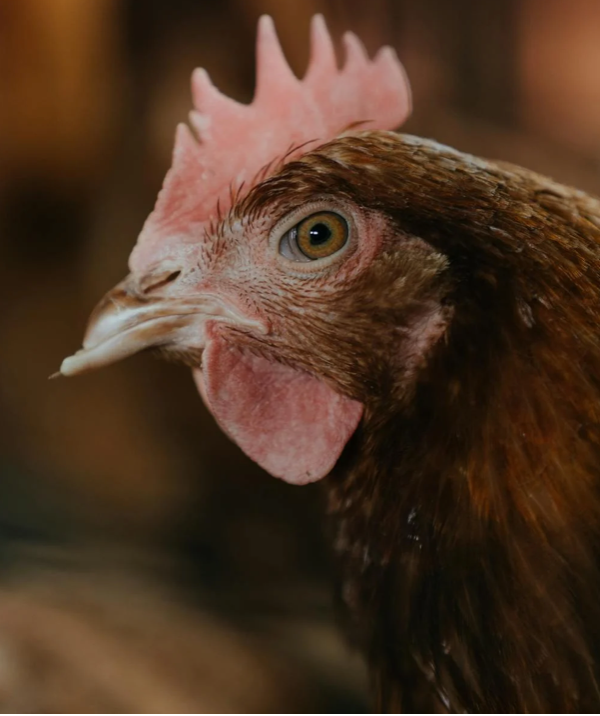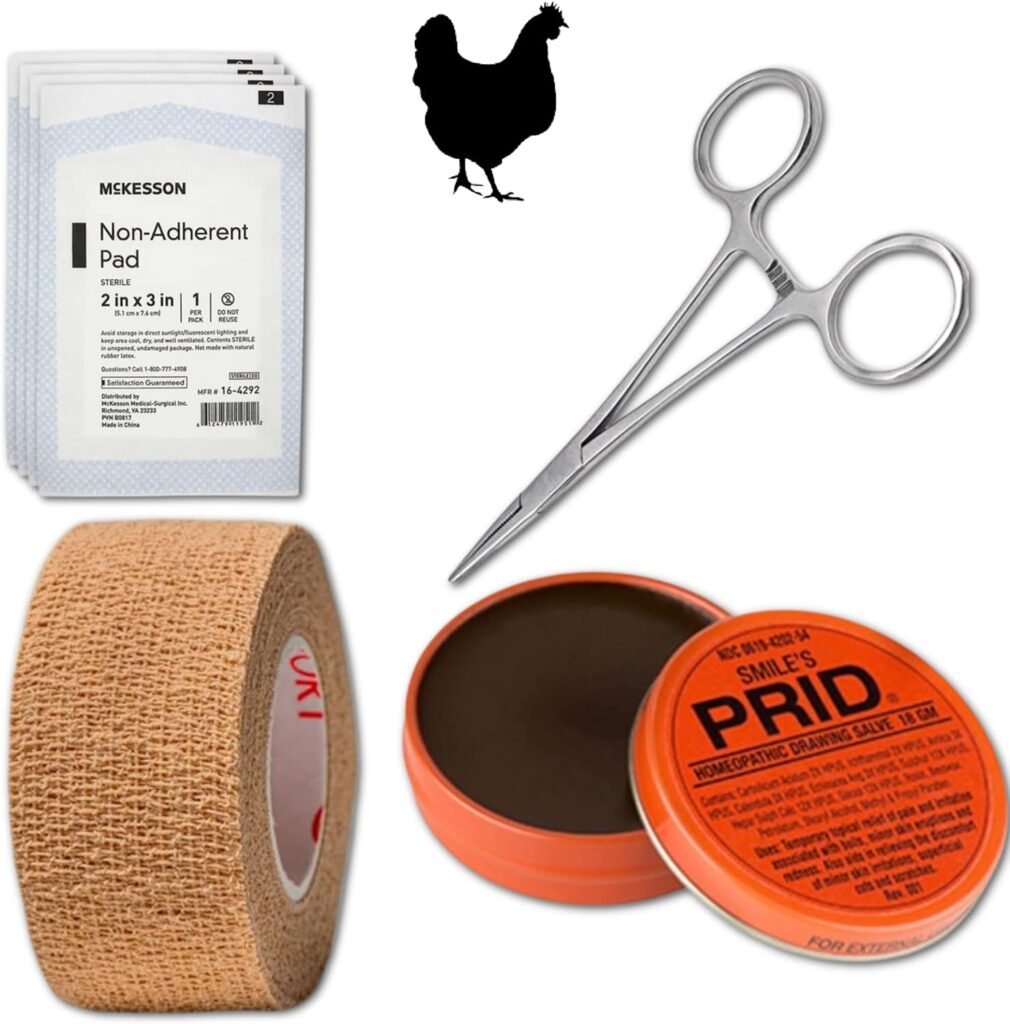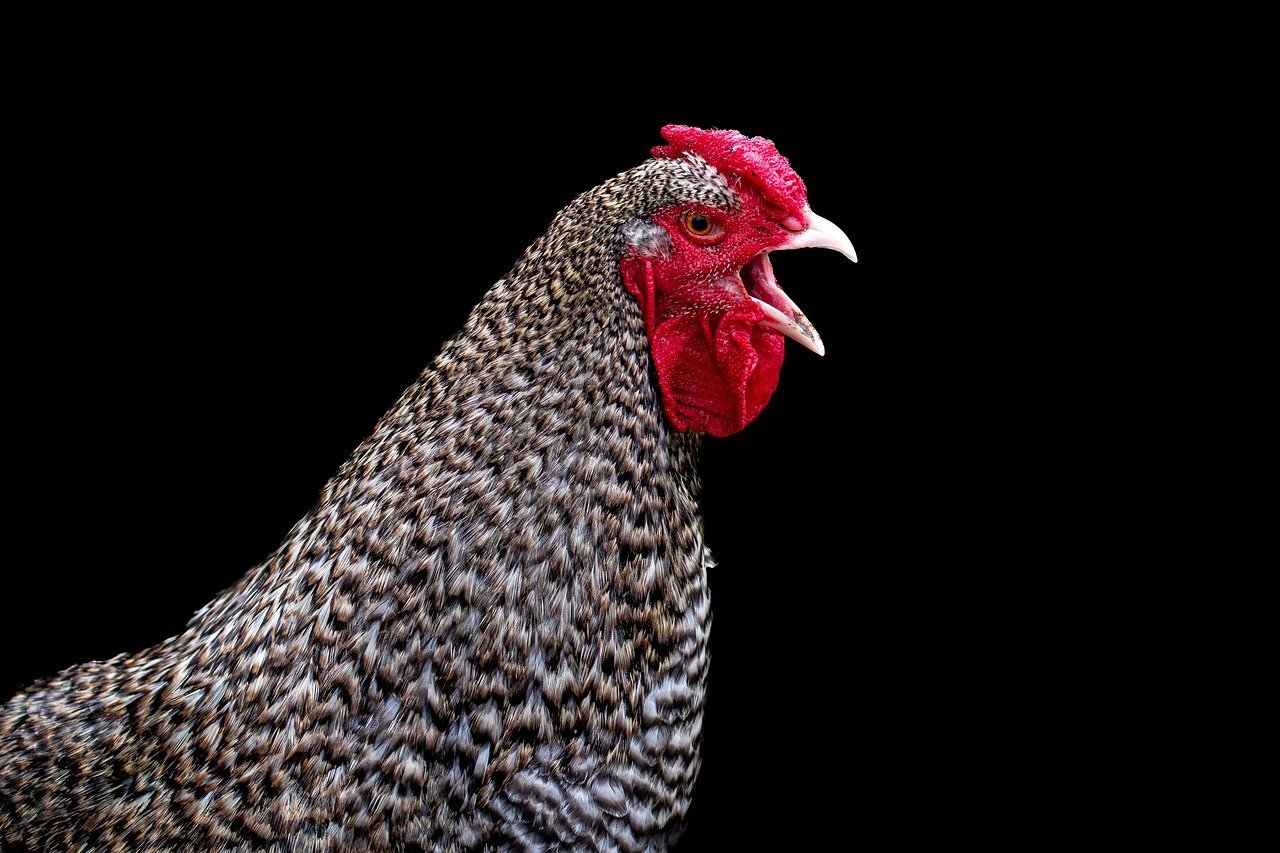
This page includes affiliate links which I may receive a small commission for at no extra cost to you. All opinions remain my own and I only recommend products or services I believe will add value to my readers.
Chickens can suffer from a variety of ailments, and prompt treatment is essential to maintain a healthy flock. Here are some common chicken diseases and conventional and natural ways to cure them. Product links are included.
- Respiratory Infections (e.g. Chronic Respiratory Disease, Infectious Bronchitis)
Symptoms: Sneezing, coughing, nasal discharge, swollen eyes, difficulty breathing.
Conventional Treatment:
- Antibiotics: Prescribed by a veterinarian, such as Tylosin or Oxytetracycline.
Natural Remedies:
- Apple Cider Vinegar: Add a tablespoon to a gallon of water to boost immunity.
- Garlic: Crush garlic and add to water for its antibacterial properties.
- Oregano Oil: Mix a few drops in water or feed to act as a natural antibiotic.
- Electrolytes and Vitamins: Add to water to boost immune function and recovery.
- Improved Ventilation: Ensure the coop is well-ventilated to reduce ammonia buildup.
2. Mites and Lice
Symptoms: Feather loss, itching, decreased egg production, visible pests
Conventional Treatment:
- Permethrin: A safe and effective insecticide powder or spray applied to chickens and their environment.
- Ivermectin: Used under veterinary guidance to treat severe infestations.
Natural Treatment:
- Diatomaceous Earth: Dust the coop and birds to kill pests.
- Wood Ash: Provide a dust bath with wood ash for the chickens.
- Neem Oil: Mix with water and spray the chickens and coop.
- Regular Cleaning: Thoroughly clean the coop and nesting areas and replace bedding.
3. Coccidiosis
Symptoms: Bloody diarrhea, lethargy, decreased appetite, weight loss.
Conventional Treatment:
- Amprolium (Corid): A coccidiostat added to drinking water to inhibit the parasite’s growth. For powder use 1/2 tsp per gallon of water for 5 days. Change water every day
- Sulfa Drugs: Such as Sulfadimethoxine., used under veterinary supervision for more severe cases.
Natural Treatment:
- Apple Cider Vinegar: Helps maintain gut health, add to water 1 tbsp per gallon.
- Probiotics: Yogurt or commercial probiotics to restore gut flora.
- Garlic: Acts as a natural antibiotic.
- Bleach Recipe: add to one gallon of water: 6 cups of regular bleach, 2.5 cups of sugar, 1 cup of apple juice, use for five days and then follow up with probiotic.
- Hygiene: Maintain clean and dry litter and bedding to reduce the spread of the parasite.
4. Worms (e.g. Roundworms, Tapeworms)
Symptoms: Weight loss, lethargy, decreased egg production, a lot of poop on eggs, visible worms in droppings.
Conventional Treatment:
- Fenbendazole: A broad spectrum dewormer effective against many types of worms.
- Ivermectin: Can also be used for internal parasites under veterinary guidance.
- Regular Deworming Schedule: Implement a routine deworming schedule to prevent infestations, approximately every 3-6 months.
Natural Treatment:
- Pumpkin Seeds: Feed crushed seeds as they contain a natural deworming agent.
- Diatomaceous Earth: Add to feed to eliminate internal parasites.
- Garlic: Mix into feed for its anti-parasitic properties.
5. Egg Binding
Symptoms: Straining, swollen abdomen, lethargy, reduced egg laying.
Treatments (all are natural):
- Warm Bath: Soak the hen in the warm water for about 20 minutes to relax the muscles and help pass the egg.
- Lubrication: Apply a lubricant such as petroleum jelly, olive oil, warm saline solution, poultry wound wash, or soapy water around the vent area to assist with egg passage.
- Calcium Supplement: Administer calcium gluconate to strengthen contractions and aid in egg laying.
6. Bumblefoot
Symptoms: Swelling, abscess on the foot, limping, difficulty walking.
Conventional Treatment:
- Antibiotics: Prescribed by a vet to treat infection, often combined with local wound care.
- Antibiotic Spray: Wound Spray, Bannix or Chlorhexidine may aid in healing
- Surgical Removal: In severe cases, a vet may need to remove the abscess surgically.
Natural Treatment (always wear gloves):
- Epsom Salt Soak: Soak the foot in warm water with Epsom salt for 10-15 minutes to reduce swelling.
- Honey or Sugar Paste or Prid drawing salve: Apply to the wound to draw out infection and then cover with gauze and bandage.
- Clean Bandaging: Cover salve treated wound with gauze. Cut the surgical wrap in strips and wrap around foot, weaving in between toes. Keep the area clean and bandaged to promote healing. Change every two to three days for one to two weeks until healed.

7. Prolapsed Vent
Symptoms: Tissue protruding from the vent, bloody discharge, straining.
Conventional Treatment:
- Clean the Area: Gently clean with warm water and apply an antiseptic such as a wound spray
Natural Treatment:
- Warm Bath: Soak the hen for a few minutes to clean the area and reduce swelling.
- Increased Calcium: Ensure adequate calcium intake to prevent recurrence.
- Honey or Sugar Paste: Apply to reduce swelling before gently pushing the tissue back in.
- Isolation and Rest: Keep the hen in a dark, quiet place to reduce laying stress.
8. Scaly Leg Mites
Symptoms: Raised scales, crusty legs, lameness
Conventional Treatment:
- Commercial mite sprays: such as Premo Guard Poultry Spray
- Oral or Injectable Ivermectin: Under veterinary supervision for sever infestations.
Natural Treatment:
- Petroleum Jelly: Coat the legs to suffocate the mites.
- Neem Oil: Mix with water and apply to the legs for its antifungal properties.
- Garlic and Apple Cider Vinegar: Add to diet to boost immunity.
Preventing these ailments involves maintaining a clean coop, providing a balanced diet, regular health checks, and appropriate vaccinations as recommended by a veterinarian or administered before you purchase your chicks. Prompt treatment and good management practices are essential to ensure the health and productivity of your chickens. I would advise always wearing gloves when treating your chickens as some ailments are very contagious.
